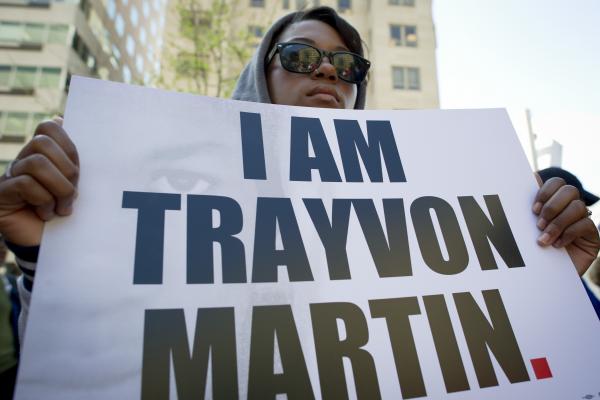Today I search my soul along with many Americans who are discussing the Trayvon Martin tragedy. These conversations can range from news blogs clamoring for justice to benign disputes about the facts of the case by office water coolers. One of the more challenging conversation threads recently came in the form of a status update on Facebook. My colleague, Efrem Smith, lamented:
"Shouldn't the young black males who are victims of black on black crime get the same attention as Trayvon Martin? I say yes."
I believe Efrem's statement could have us conversing for months to come should we be bold enough to lovingly engage.
My most personal conversation happened recently with my cousin Edwin. Edwin and I share similar stories of race and ethnicity. We're both Puerto Rican. Both black Latinos. And like me, it took a while before he would accept blackness as part of his own experience and identity.
Edwin and I reminisced about our childhood days in New York City, recalling how innocent moments like running down the block with unabashed excitement could possibly get you stopped by police. We even laughed with a dulled sense of inner sorrow about how our success rates for catching a taxicab greatly increase when our wives hail.
Edwin's formative experience with race came in 1978 while attending undergrad in North Carolina. One morning as he jogged up a solitary road, a pick-up truck carrying some of the neighborhood’s “friendliest” zoomed by, yelling out the “N-word" in his direction.
At first, Edwin glanced around to see where this black person was. After all, he was Latino, not African-American. In a moment of befuddlement Edwin found himself internally processing,
"Who me? A n***er? But I'm Puerto Rican!"
Like dawn’s first glimmer over project landscapes, a ray of realization peaked through Edwin’s consciousness about race and society: Some people have no iota of interest in making distinctions between constructs and categories like ethnicity (Puerto Rican), and race (black or white).
Experiences like these were an initiation of a certain kind – an involuntary immersion into a world of overt yet subtle diminishment. And to the degree we were in touch with these minimizing moments, we could become a little more familiar with aspects of blackness.
From a Liberationist perspective, to become black goes beyond a checkbox in a census data column. To become black is to enter into the experience of black pain – to enter a social, historical, yet living experience of a people group who were uprooted and humanly diminished.
For you and I to personally engage even fragments of this history can make blackness, in a sense, a transcendent experience. So while some of us will never know what it means to be black, we might know what it means to be physically, spiritually or psychologically diminished. It comes in many forms: The overweight woman who is passed up for promotion because of gender or body type; the young Irish teen bullied on Facebook leading to a tragic suicide; the Iraqi-American woman recently beaten, killed and labeled a terrorist.
To be in touch with this kind of pain today is to engage in the “fellowship of suffering” with the Martin family, and many others. Even if the facts of the tragedy cannot be proven (and we hope they can), we lament and grieve together, as we ought any tragedy against any people-group.
Last weekend, when African-Americans, Latinos, Caucasians, Asians and many others "rocked their hoodies" it became a fellowship of lament. Hoodies became prophetic symbols – a way of conveying urgent distress to a world gone numb to the plight of young black men in America. In the spirit of the Old Testament prophets, hoodies were a pantomime, a non-verbal enactment locating injustice right under our noses.
With this understanding, a potentially divisive discussion can actually become a platform to understand some aspects of the black experience. I am happy to say these discussions are happening in the church I lead right now. Though informal, African-Americans, Caucasians, Latinos and Asians are conversing around lunch counters and dinner tables. We don’t propose to elevate one people-group’s experience over another (I have my own legitimate experience as a Latino and you have yours). It’s more of a ginger attempt to enter real pain within our present social reality. And for brief, even fleeting moments, it becomes incarnational community at its best.
My hope is that Trayvon Martin can enter more of our conversations, abide in our reflections during the remainder of Lent and beyond. With Lent coming to a close and Good Friday approaching, I reflect on the words of the Apostle Paul:
“That I might know Him, in the power of his resurrection and the fellowship of his suffering.”
Paul knew well a man who was kicked out of a gated community, and crucified outside the city gates. I would submit for our consideration that our Lord knows the black experience well.
The Rev. José Humphreys is a faith organizer, and pastor of Metro Hope Covenant Church, a multi-ethinic church movement in East Harlem, NYC. José remains committed to shalom-making in NYC, through facilitating conversation across social, economic, cultural and theological boundaries.
Got something to say about what you're reading? We value your feedback!
